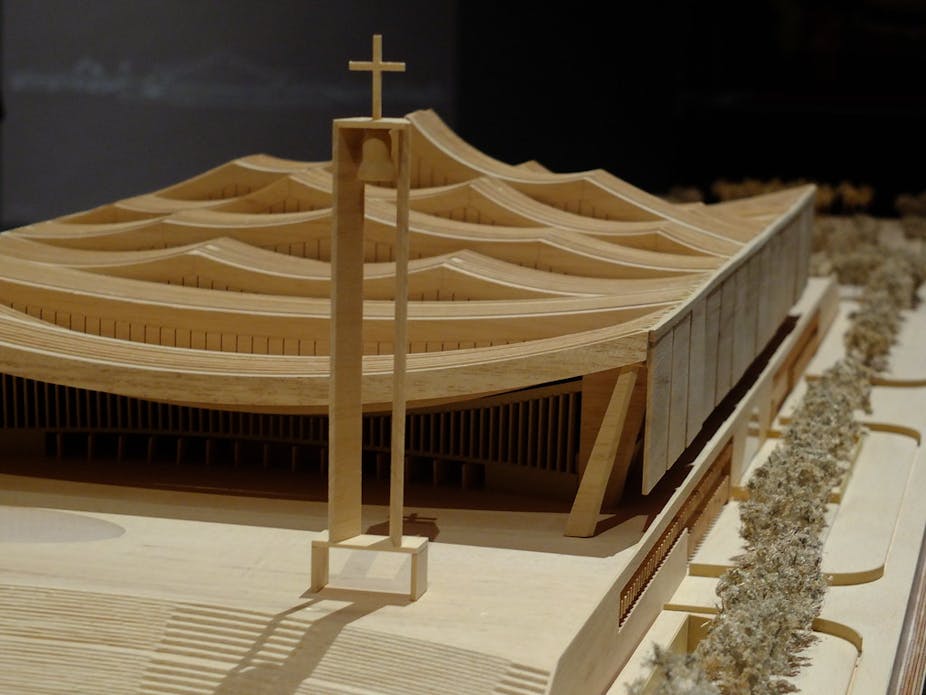Ghana is a religious country. According to the 2021 census, about 71% of the population is Christian and 18% Muslim. Followers of indigenous or animistic religious beliefs make up another 5%, and 6% are members of other religious groups or don’t have religious beliefs.
Many Ghanaians regard Ghana as a “nation of Christians.”
The New Patriotic Party’s electoral slogan in 2016 and 2020 was: “For the battle is the Lord’s.” These are words David is said to have uttered when confronting Goliath in their biblical combat. The party’s electoral slogan referenced the Christian god and implied the party was fighting a holy battle in seeking the presidency and a parliamentary majority.
The New Patriotic Party won the elections in 2016 and 2020. This followed two terms in office (2009-17) by the National Democratic Congress.
Traditionally in Ghana, religion and politics did not mix. Christian nationalism is an explicit attempt to mix them. My argument as a scholar of religion and politics is that it puts the human rights of minorities in jeopardy.
Church and state
In the 1980s, the Christian churches in Ghana clashed with the Provisional National Defence Council government of Jerry Rawlings. But the issue was not politics. The churches were concerned that Rawlings intended to limit a key human right: religious freedom.
The churches were strong supporters of the return to democracy in 1993. They regarded democracy as the best political environment to protect human rights, including religious freedom.
Aside from this, churches have not, as a matter of principle, got involved in politics. But some senior political leaders have got involved in religion.
For example, in May 2011 the then president, the National Democratic Congress’s John Evans Atta-Mill, declared at the annual convention of the Church of Pentecost Ghana that “Christ is the president of Ghana.” This was his “guiding principle as head of state.”
The statement suggests he regarded Christianity as Ghana’s national religion.
In March 2017 the current president, the New Patriotic Party’s Nana Addo Dankwa Akufo-Addo, announced his intention to build a national cathedral to the glory of the Christian god, also underlining Ghana’s Christian culture.
Clash of values
The last few years have seen explosive growth in Pentecostal and Charismatic churches. Church leaders, including Action Faith Ministries’ Archbishop Nicholas Duncan-Williams, a close associate of President Akufo-Addo, and Reverend Paul Frimpong-Manso, a past General Superintendent of the Assemblies of God, Ghana, have high public profiles.
Frimpong-Manso is president of the Ghana Pentecostal and Charismatic Council, the public voice of over 250 churches. Both Duncan-Williams and Frimpong-Manso exploit their religious position, social prestige and personal persuasiveness to disseminate certain norms, beliefs, values and morals as fundamental aspects of a Christian worldview. This includes the “gospel of prosperity”, strong support for “family values” and intolerance towards the LGBTQ+ community.
These are key characteristics of Christian nationalism, an ideology of growing political importance in Ghana and several other African countries. Nigeria, Côte d'Ivoire and Zambia are among them.
Christian nationalists promote the fusion of their preferred form of Christianity and a country’s civic and political life. Christian nationalism has little theological depth. It is essentially a political ideology which regards Christianity as an endless source of wisdom which applies to political and social concerns.
Christian nationalism and human rights
Christian nationalism is a threat to human rights in Ghana, not only in relation to Ghana’s LGBTQ+ community but also in that it threatens the Ghana Education Service’s attempt to introduce a new sexuality education policy supported by Unesco and the UN Population Fund. The UN agencies view equal rights for all - men and women - as highly important and the Christian nationalist approach in Ghana appears to try to downgrade those of women, especially in relation to reproductive health.
Christian nationalists claim that Ghana’s LGBTQ+ community is in thrall to alien ideas about sexuality and the family. Support for legislation to attack the LGBTQ+ community came from some MPs and domestic religious organisations as well as external groups linked to the Global Christian Right. These groups collectively have put pressure on parliament to pass the draconian LGBTQ+ bill into law.
The US-based World Congress of Families is one of the external organisations supporting the push for this bill to be passed into law. The organisation is active in many African countries. It organised a high-profile conference in Accra in 2019 to highlight the “natural” family and “family values”, and to condemn homosexuality, Islam, abortion and other reproductive health rights.
The conference was widely seen as a catalyst for increased oppression of Ghana’s LGBTQ+ community.
There is currently a private members’ bill before parliament which, if passed into law, would be one of Africa’s most restrictive anti-LGBTQ+ laws. The law contains measures which would be highly discriminatory against LGBTQ+ people. They would directly contradict Ghana’s adhesion to the International Covenant on Civil and Political Rights and the African Charter.
The proposed new law would also damage Ghana’s reputation as a liberal political and social environment. For decades, the World Bank has consistently ranked Ghana among the top three countries in Africa for freedom of speech and press freedom. During the same period, the American non-governmental organisation Freedom House has consistently categorised Ghana as “free”, implying a high standard of political rights and civil liberties.
Conclusion
Ghana is constitutionally a secular state, yet Christian nationalism is politically influential.
According to academics George Bob-Milliar and Karen Lauterbach, this
reveals an interesting crossover of two dominating trends in which culture, religion and politics merge, namely the ambition to create and define the future of civilization in Africa.
It also marks the influence of a theocratic-political elite in Ghana employing the ideology of Christian nationalism to advance its own interests.

